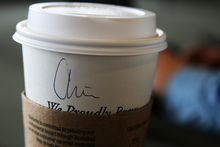
Many of us have friends and loved ones who are ill, recuperating from surgery, or undergoing treatment and we would like to visit and show support. This is a kind gesture, but visits can overwhelm the patient. Here are some guidelines for a positive interaction:
- Allow the patient to suggest a day and time so it meets their needs.
- Plan on visiting fifteen to thirty minutes. If you see the patient becoming tired or restless, these are probably signs that it is time to leave. If they ask you to remain longer, you can decide whether to stay.
- Direct your conversation to the patient. Avoid discussing your plans, life, or problems. This visit is all about the patient.
- Avoid asking intrusive questions about their diagnosis, prognosis, or difficulties.
- Do inquire how they are feeling but, take your cues from the patient on safe topics of discussion.
- Call ahead to see if the patient would like you to pick up lunch or a treat. If they would enjoy lunch, suggest a deli and ask what type of sandwich they prefer. Or, inquire what coffee or tea they like and pick one up for them and yourself on the way over. A little treat such as a biscotti, cookie, or muffin may be appreciated during your visit or after.
- During your phone call, ask if there is an errand you can run, such as picking up a prescription or an item at the grocery store.
- If you would like to bring a little gift consider something that requires little maintenance. Avoid fussy flowers and choose a plant instead. Or bring a book, magazine, or a gift card so they can choose their own diversion - something to keep the patient occupied as they recuperate.
 RSS Feed
RSS Feed
